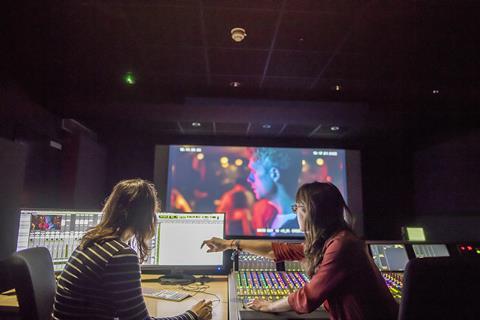Industry figures sound out about absence of post-production schemes for new talent

The backroom nature of technical roles has led to a significant disparity in diversity representation in the field when compared to production and on-screen representation.
Zeb Achonu, a freelance film and TV editor, told a recent Channel 4-hosted panel on diversity in post-production that technical crew were “hidden away” and not accounted for by production companies preoccupied with ensuring representation on-set.
“I genuinely believe we’ve gone backwards over the last 10 years with this because so many of us are now freelance; there’s no HR keeping tabs on what’s going on and who’s coming in and out of buildings,” she said.
“In post-production, we’re hidden away in little rooms…and people aren’t checking anymore if those boxes have been ticked.”
She added that producers and post-production houses tend to repeatedly hire the same people, and that decisions need to be made at a senior level so that diversity is represented right across the project, not just in editorial and on-screen, She takes heart that newer indies are more inclusive..
“A lot of newer indies that I work with are really diverse without trying because that’s the way they’ve grown,” she said. “It all has to change right from the top because if the companies that are currently getting all the commissions aren’t doing anything [to change], then [we need to] get some new blood in.”
Mama Youth Project founder Bob Clarke said he is seeing slight progression in the industry but that he still often finds himself the only black person in the room. He called for more dedicated diversity and inclusion (D&I) post-production schemes to find the next generation of talent.
Jasmin John, assembly editor and founder of Black Women in Post-Production, said that opening the door to new talent is a “collective responsibility” and that even in junior roles, she had the trust of senior personnel to hire new talent. For example as a first assistant editor, she brought in a young woman as a trainee who has subsequently moved up to become a second assistant editor.
“At every level, we can be doing something, the onus [shouldn’t be on] those in hiring positions at senior level,” she added.
Achonu said that during lockdown she was introduced to the concept of ‘bringing someone to the table’ where a new person was brought along to a networking event and introduced to the group, and that individual would then bring a new person along to the next event, opening up the group to new talent.
Panel moderator Emma Butt added: “If everybody adopted that policy, that is a small change that would make a massive difference in a very short amount of time.”
Ultimately, people continue to work with those they have collaborated with before and that implementing D&I measures is seen as a financial risk, said Clarke.
“Everyone talks about inclusion but then don’t want to pay to get it right, so we’re forever trying new ways trying to get it right without really having to pay for it, which is a problem,” he said.
Channel 4 creative diversity lead for the nations and regions Neila Butt said the broadcaster will soon announce “tangible actions” to help rectify the D&I issues in post-production.





























No comments yet